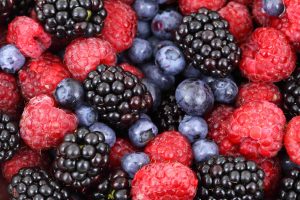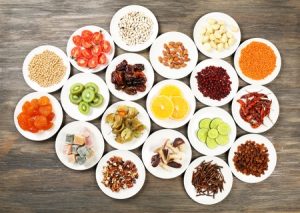For many cancer patients, treatment can lead to changes in their sense of taste and smell that can make it challenging to eat healthy. During and even after treatment, changes in eating habits are commonly reported, which can cause unintended weight change and poor nutrition.
Yet how and why treatment affects patients’ food choices is a complex field with many unknowns.
A new review has sought to summarize the relevant research, suggesting that changes in taste caused by treatment may directly affect eating habits, with reduced sensitivity to sweet tastes linked to a lower intake of a variety of nutrients, reduced appetite, and overall fewer calories. The review highlights the need to identify strategies to help patients eat well during and after cancer treatment.
The review article was published in the journal Nutrients and is available online here.
“The results of this review paper compile previous research showing that reduced taste function, particularly for sweet stimuli, may be associated with a reduced appetite, avoidance of certain foods, and reduced consumption,” said Angela Hummel, MS, RD, CSO, a consulting dietitian with AICR and specialist in oncology nutrition. “This supports the next steps for researchers – finding clinical strategies and interventions for healthcare practitioners and patients to use to overcome the taste changes and barriers to maintaining nutritional status during cancer treatment.”

Sweet and bitter changes
For the review, the authors searched for studies that included common terms used to describe taste and cancer treatment then looked at their references and citations. The many terms used to describe and assess taste made it challenging to come up with a set list of search terms to do a systematic review, said lead author Alissa Nolden, PhD, an assistant professor in the Department of Food Science at the University of Massachusetts Amherst. Here, the authors read the abstracts to identify relevant papers.
Studies had to include adults and objective measures of taste and smell function, as opposed to self-reported changes in taste or smell. They ended with 11 studies published between 1982 and 2018.
Overall, the paper found that changes in sweet and, to a lesser extent, bitter perception, were more common than changes to salt or sour perception in cancer patients. Studies were mixed as to how these changes affected eating habits. A comparative analyses of three of the studies found that decreased sensitivity to the taste of sweet linked to consuming less fat, protein, and daily calories.
As the authors note, given the small number of studies in this analysis, “conclusions should be drawn cautiously.”
The paper found no link between changes in smell and eating behavior.
Small studies, cancers differ
This review included a relatively small number of studies, having a combined total of 578 participants, with 380 people having cancer and the rest acting as controls. Also, individuals may experience taste and smell changes prior to treatment as a result of cancer, and each type of treatment may affect taste and smell perceptions in different ways.
Generally, people report taste function returning to their “normal” post-treatment, but this is not the case for all patients, says Nolden. Taste function can return to “normal” but liking or disliking certain foods may be forever altered for survivors.
“Cancer treatment may also lead to taste and/or smell changes that cause some people to gain weight,” notes Nigel Brockton, PhD, Vice President of Research at AICR. With such a small number of studies on the topic, this review highlights that more studies are needed that objectively measure taste changes and dietary responses related to cancer treatment.
As the research continues, there are recognized strategies that can help.
“For individuals dealing with taste changes I would suggest discussing this with their healthcare team to find strategies to help,” said Hummel. “Reaching out to their physician, registered dietitian and even a dentist could help improve the changes they are dealing with. There is also helpful information in AICR’s CancerResource guide,” she said.

CancerResource: Living with Cancer offers several strategies for patients experiencing taste changes. These strategies include:
- Choose foods that appeal to you. Moist and naturally sweet foods such as frozen melon balls, grapes or orange wedges may be particularly appealing, as may tart foods and beverages such as oranges, lemon yogurt or lemonade (but not if your mouth is sore).
- If the taste of red meat is now less appealing, find healthy alternatives, such as chicken, turkey, fish, beans, nut butters, eggs or dairy products.
- Add small amounts of sugar to some foods, which may decrease salty, bitter or unpleasant tastes.
- Serve foods cold or at room temperature, which may improve how they taste.
- Brush your teeth and tongue and rinse your mouth regularly, especially before eating, to clean your tastebuds. Choose alcohol-free mouthwashes; look at the label for inactive ingredients.
- Rinse your mouth several times a day with water or a baking soda mixture (one quart water combined with one tablespoon of baking soda).
CancerResource also offers approaches for patients experiencing weight gain, weight loss and under-nutrition.
“There are a few key points that will help to improve patients’ experience with food during and following cancer treatment. Strategies need to be clinically evaluated for effectiveness,” said Nolden.
For the latest research on lifestyle and cancer survivorship, sign up for AICR’s monthly e-newsletter, Recharge.
The review paper reports it had no specific grant from funding agencies.





